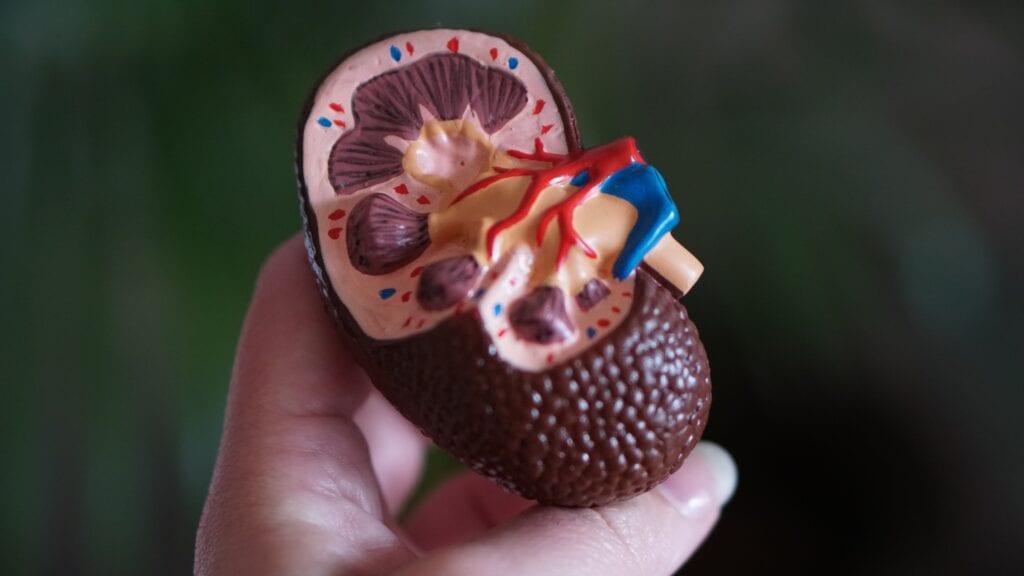According to a news release, researchers from biopharmaceutical company HUTCHMED and pharmaceutical company AstraZeneca launched, at the onset of November 2021, the Phase 3 SAMETA clinical trial. During the trial, researchers will evaluate savolitinib in conjunction with IMFINZI for patients with MET-driven advanced papillary renal cell carcinoma.
Savolitinib and IMFINZI
Savolitinib
To begin, let’s first break down exactly what these therapies are. Savolitinib is a MET tyrosine kinase inhibitor which is being evaluated in a variety of solid tumor types. For example, outside of papillary renal cell carcinoma, researchers are exploring savolitinib for:
- Non-small cell lung cancer (NSCLC) with MET exon 14 skipping alterations
- Prior studies have found that savolitinib for NSCLC helps improve progression-free survival. It also was found to have a high response rate, as well as be relatively safe and well-tolerated.
- Kidney cancer
- Researchers will evaluate the therapeutic combination in the Phase 3 SAMETA trial. Other clinical trials around kidney cancer have included the SAVOIR and CALYPSO trials. These trials highlighted a promising overall response rate, as well as solid safety, efficacy, and tolerability data.
- Gastric cancer
- Thus far, researchers have explored savolitinib for patients with advanced or metastatic MET-amplified gastric cancer or adenocarcinoma of the gastroesophageal junction. These studies saw an overall response rate of 50%.
- Colorectal cancer
Savolitinib works by blocking abnormal MET receptor tyrosine kinase pathway activation. Normally, this activation occurs due to gene amplifications or mutations. By stopping this from occurring, researchers believe savolitinib could be beneficial for patients with papillary renal cell carcinoma. In particular, this treatment could benefit patients whose cancer has been treatment-resistant, or patients who cannot undergo the current standards-of-care.
IMFINZI
IMFINZI (durvalumab) is an intravenously administered human monoclonal antibody that works by binding to PD-L1 and preventing it from interacting with PD-1 or CD80, types of proteins. Through this process, IMFINZI stops the tumor from evading the immune system. Currently, IMFINZI is approved in varying countries for the treatment of patients with unresectable NSCLC, bladder cancer, and small cell lung cancer (SCLC).
The Clinical Trial
Within the Phase 3 SAMETA trial, researchers will evaluate savolitinib and IMFINZI for previously-untreated patients with MET-driven papillary renal cell carcinoma. In particular, the study will evaluate the safety, efficacy, pharmacokinetic profile, and tolerability of this therapeutic intervention in comparison to either IMFINZI or SUTENT (sunitinib) on its own.
Renal Cell Carcinoma (RCC)
Renal cell carcinoma (RCC) is an easily metastasizing kidney cancer, which may spread to the lungs or other organs. Typically, this cancer begins as a tumor in one kidney, though it may affect both kidneys at once. Although RCC is rare, it is also considered the most common form of adult kidney cancer. Risk factors include age (50-70) and being male. Additionally, PRC, VHL, and TFE 3 gene mutations have been linked to RCC. Symptoms include:
- Hematuria (blood in the urine)
- Unintended weight loss
- Fever
- Abdominal pain
- Vision abnormalities
- Fatigue
- High blood pressure
- Enlarged testicle
Papillary renal cell carcinoma (PRCC) is a subtype of RCC and can be considered either type 1 or type 2. PRCC can be difficult to treat, especially for patients with MET-driven tumors. An estimated 15% of RCC diagnoses are PRCC, with MET alterations found in 81% of PRCC type 1 and 46% of PRCC type 2 tumors. Symptoms are, in large part, those listed above.






